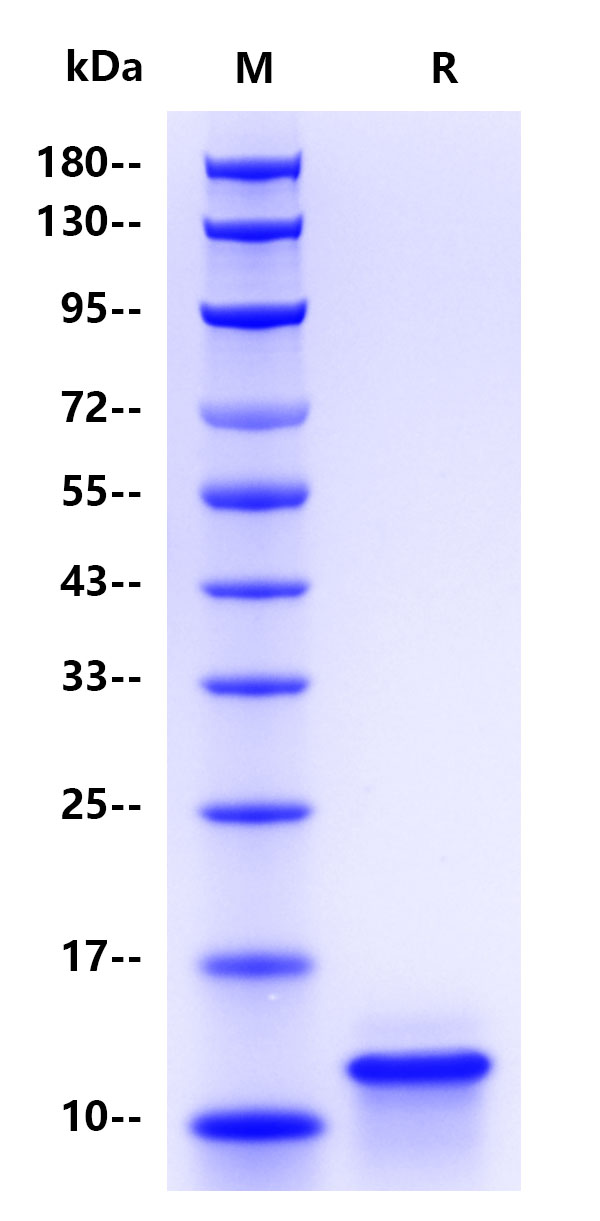Protein sequence(P07492, Ser54-Asp121 with C-10*His)
STGESSSVSERGSLKQQLREYIRWEEAARNLLGLIEAKENRNHQPPQPKALGNQQPSWDSEDSSNFKDGGGGSHHHHHHHHHH
>95% by SDS-PAGE
12 months from date of receipt, -20 ℃ to -70 °C as supplied.
1 month, 2 to 8 °C under sterile conditions after reconstitution.
Please avoid repeated freeze-thaw cycles.
Pro-Gastrin-Releasing-Peptide, also known as Pro-GRP, is a Gastrin-Releasing-Peptide (GRP) precursor, a neurotransmitter that belongs to the bombesine/neuromedin B family. GRP stimulates the secretion of gastrin in order to increase the acidity of the gastric acid. Pro-GRP is a peptide composed of 125 amino acids, expressed in the nervous system and digestive tract. In pathological situations, GRP has mitogenic activity in vitro in many tumors such as pancreatic, small cell lung (SCLC), prostate, kidney, breast and colorectal cancers. GRP could operate as an autocrine growth factor. In cancers, GRP induces cell growth and inhibits apoptosis by shutting down the endoplasmic reticulum stress pathway. As early as 1994, research on Pro-GRP as a biomarker for small cell lung cancer began. Because of the very short half-life of GRP (2 minutes), the Pro-GRP is used for measurements and analysis. Since then, Pro-GRP has been used as a tumor marker for patients with small cell lung cancer (SCLC) in limited and extended stages.
